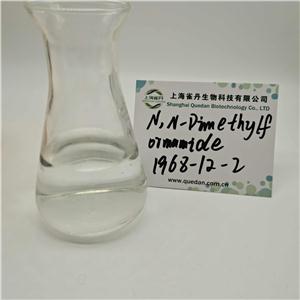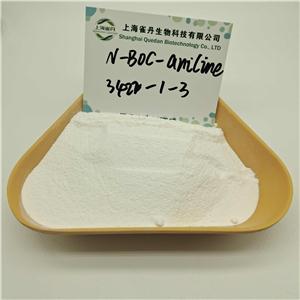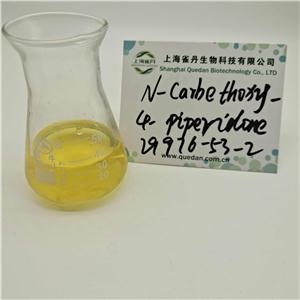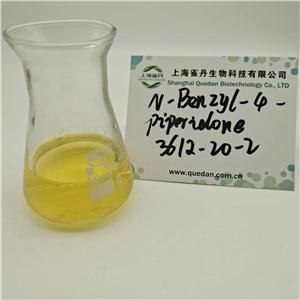
N,N-Dimethylformamide
| Price | $10 |
| Package | 1kg |
| Min. Order: | 1kg |
| Supply Ability: | 20ons |
| Update Time: | 2022-11-01 |
Product Details
| Product Name: N,N-Dimethylformamide | CAS No.: 68-12-2 |
| Min. Order: 1kg | Purity: 0.99 |
| Supply Ability: 20ons | Release date: 2022/11/01 |
N, n-dimethylformamide
The Chinese name is N, n-dimethylformamide
N, n-dimethylformamide
Chinese alias dimethylformamide
More English nicknames
Biological activity of N, N-dimethylformamide
N, N- dimethylformamide (DMF) is widely used as a drug solvent. N, N-dimethylformamide is a dipolar prophilic solvent with physicochemical properties, so it is suitable for capillary electrophoresis (CE) solvent [1][2].
Related category
Research Field > > other
Signal path > > Other; > other
In vivo study of N, N-dimethylformamide (DMF; N-formyldimethylamine) is hepatotoxic [3].
Reference literature
[1]. Porras SP, et al. Capillary electrophoresis in N,N-dimethylformamide. Electrophoresis. 2005; 26 (17) : 3279-3291.
[2]. Varma RK, et al. Solvent artifacts likely to be induced by dimethylformamide. Indian J Physiol Pharmacol. 1986; Three (3) : 248-254.
[3]. Mraz J., et al. Investigation of the mechanistic basis of N,N-dimethylformamide toxicity. Metabolism of N,N-dimethylformamide and its deuterated isotopomers by cytochrome P450 2E1. Chem Res Toxicol. 1993; (2) : 197-207.
Physical and chemical properties of N, N-dimethylformamide
Density 0.948g /mL at 20 °C
Boiling point 153 °C(lit.)
Melting point -61 °C
Molecular formula C3H7NO
Molecular weight 73.09380
Flash point 136 °F
Accurate mass 73.05280
PSA 20.31000
LogP 0.34030
Appearance properties transparent colorless liquid
Vapor density 2.5 (vs air)
Refractive index n20/D 1.430(lit.)
Storage condition
Storage Precautions Store in a cool, ventilated warehouse. The temperature of the warehouse should not exceed 37℃. Keep away from fire and heat. Keep the container sealed. It should be stored separately from oxidants, reducing agents, halogens, and do not mix storage. Explosion-proof lighting and ventilation facilities are adopted. Do not use mechanical equipment and tools that are prone to spark. The storage area should be equipped with leak emergency treatment equipment and suitable holding materials.
stability
1. As an aprotic polar solvent, it has good solubility for a variety of organic and inorganic compounds, and has good chemical stability in the absence of alkali, acid and water.
2. Chemical properties: In the presence of no acid, alkali, water, even heating to the boiling point is relatively stable. Under the action of an acid it breaks down into formic acid and dimethylamine salts, and under the action of a base it breaks down into formates and dimethylamine.
3 by UV decomposition into dimethylamine and formaldehyde, heated to about 350℃ decomposition into dimethylamine and carbon monoxide. With hydrochloric acid to form a relatively stable molar adduct, its melting point is 40℃, boiling point is 110℃. It can also form crystalline adducts with SO3, whose melting point is 138℃ and boiling point is 145℃. DMF-SO3 can be used as a mild sulfonating agent and sulfating agent. Admixtures formed with POCl3, COCl2, SOCl2, etc., can introduce CHO groups (Vilsmeier reactions) into aromatic rings with high electron density. P2O5 is insoluble in N and n-dimethylformamide at room temperature, but it can be dissolved at room temperature without precipitation after forming stable complex above 40℃. Heated in the presence of metallic sodium, a violent reaction occurs and hydrogen gas is released. And triethyl aluminum at 0℃ can also have a violent reaction. It can also react with Grignard's reagent. It reacts with acyl chloride and anhydride to form a derivative of dimethyl amide.
4. Low toxicity. Animal studies have shown that continuous doses of N, N-dimethylformamide cause weight loss and hinder hematopoietic function. It has a strong irritating effect on the eyes, skin and mucous membrane, and can cause liver disorders after the liquid or vapor is absorbed by the skin. Inhalation of high concentrations of vapors can cause acute poisoning. The main symptoms are severe irritation, general cramps, painful constipation and nausea and vomiting. In addition to skin and mucosal irritation, chronic poisoning also includes nausea, vomiting, chest tightness, headache, general discomfort, decreased appetite, stomach pain, constipation, changes in liver enlargement and liver function, and increased urobilinogen and urobilin. When using, the average vapor concentration should be below 29.9mg/m3, and the toxic symptoms (injury to the central nervous system) will appear at 59.8mg/m3. The oral toxicity LD50 in rats and mice ranges from 3000 to 7000mg/kg. The olfactory threshold concentration is 0.14mg/m3, and TJ 36-79 specifies a maximum allowable concentration of 10mg/m3 in the air of the workplace.
5. Stability Stability
6. Forbidden compounds strong oxidant, acyl chloride, chloroform, strong reducing agent, halogen, chlorinated hydrocarbon, concentrated sulfuric acid, fuming nitric acid
7. Polymerization harms non-polymerization
Water soluble soluble
Molecular structure
1. Molar refractive index: 19.85
2. Molar volume (cm3/mol) : 82.6
3. Isotropic volume (90.2K) : 186
4. Surface tension (dyne/cm) : 25.7
5. Dielectric constant (F/m) : 36.7
6. Dipole distance (D) : 3.86 (1D=3.33×10-30C·m)
7. Polarization (10-24cm3) : 7.87
Computational chemistry
1. Reference value of hydrophobic parameter calculation (XlogP) : -1
2. Number of hydrogen bond donors: 0
3. Number of hydrogen bond receptors: 1
4. Number of rotatable bonds: 0
5. Topological molecular polar surface area (TPSA) : 20.3
6. Number of heavy atoms: 5
7. Surface charge: 0
8. Complexity: 33.9
9. Number of isotope atoms: 0
10. Determine the number of atomic constitutive centers: 0
11. Number of uncertain atomic constitutive centers: 0
12. Determine the number of chemical bond structure centers: 0
13. Number of uncertain bond structure centers: 0
14. Number of covalent bond units: 1
more
1. Properties: Colorless transparent or light yellow liquid, with fishy smell.
2. Melting point (℃) : -61
3. Boiling point (℃) : 153
4. Relative density (water =1) : 0.95
5. Relative vapor density (air =1) : 2.51
6. Saturated vapor pressure (kPa) : 0.5 (25℃)
7. Heat of combustion (kJ/mol) : -1921
8. Critical temperature (℃) : 374
9. Critical pressure (MPa) : 4.48
10. Octanol/water partition coefficient: -0.87
11. Flash point (℃) : 58 (OC)
12. Ignition temperature (℃) : 445
13. Explosion limit (%) : 15.2
14. Lower explosive limit (%) : 2.2
15. Solubility: miscible with water, can be miscible in most organic solvents.
16. Refractive index (25oC) : 1.42817
17. Viscosity (mPa·s,25oC) : 0.802
18. Specific rotation (o) : 0.94
19. Ignition point (oC) : 445
20. Heat of evaporation (KJ/mol,25oC) : 47.545
21. Heat of evaporation (KJ/mol,100oC) : 43.585
22. Heat of evaporation (KJ/mol,b.p.) : 38.368
23. Heat of melting (KJ/mol) : 16.165
24. Heat of combustion (KJ/mol) : 1915.46
25. Specific heat capacity (KJ/(kg·K),25oC, constant pressure) : 2.14
26. Electrical conductivity (S/m) : 6×10-8
27. Thermal conductivity (W/(m·K),20oC) : 0.16579
Company Profile Introduction
You may like
Recommended supplier
| Product name | Price | Suppliers | Update time | |
|---|---|---|---|---|
| $0.00/1kg |
VIP1Y
|
Chongqing Soarwin Technology Co., Ltd
|
2025-04-09 | |
| $10.00/1kg |
VIP7Y
|
Hebei Chuanghai Biotechnology Co., Ltd
|
2024-10-24 | |
| $1.00/1kg |
VIP4Y
|
Hebei Chuanghai Biotechnology Co,.LTD
|
2024-08-20 | |
| $0.00/200kg |
VIP2Y
|
Qingdao RENAS Polymer Material Co., Ltd.
|
2024-06-25 | |
| $1060.00/1T |
Yujiang Chemical (Shandong) Co.,Ltd.
|
2024-05-07 | ||
| $30.00/1KG |
Wuhan Ruichi Technology Co., Ltd
|
2024-01-03 | ||
| $0.00/1kg |
Hebei Jingbo New Material Technology Co., Ltd
|
2023-12-22 | ||
| 10.00/1kg |
Nanjing Deda New Material Technology Co., Ltd
|
2023-11-29 | ||
| $10.00/1kg |
Nantong Guangyuan Chemicl Co,Ltd
|
2023-11-17 | ||
| $50.00/1kg |
Anhui Zhongda Biotechnology Co., Ltd
|
2023-10-16 |
- Since: 2017-03-21
- Address: Room M084, 3rd Floor, Building 1, No. 1887 Chenqiao Road, Fengxian District, Shanghai
+86-13004146052
lnzc@quedan.com.cn







 China
China